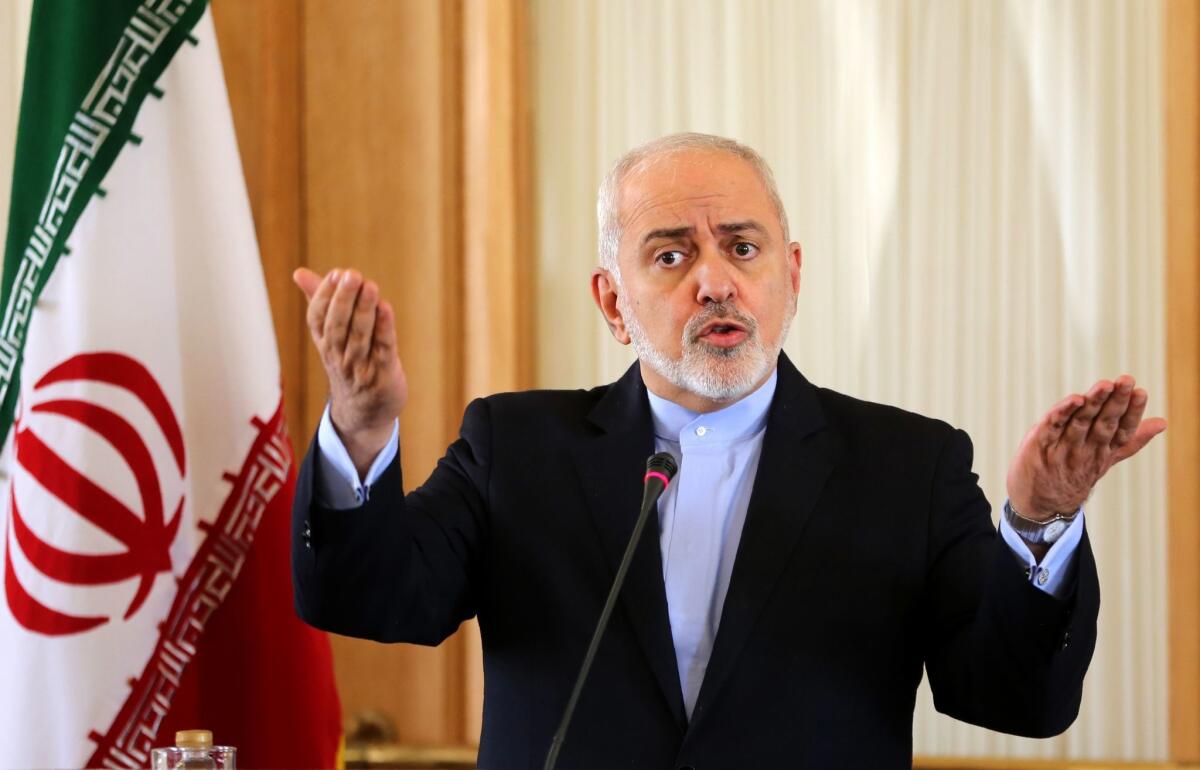Trump slaps new sanctions on Iran’s foreign minister

- Share via
President Trump announced new sanctions Wednesday against Iran’s foreign minister, sending another harsh but mostly symbolic message to Tehran.
The latest ratcheting-up of tensions comes roughly a month after the Treasury Department, following an executive order from the president, sanctioned Iran’s supreme leader, Ayatollah Ali Khamenei and his office, closing off his access to the international financial system. The move was largely symbolic since the Ayatollah is not believed to hold any foreign bank accounts.
At the time, Treasury Secretary Steven T. Mnuchin indicated that Trump had also directed him to sanction Mohammad Javad Zarif, the U.S.-educated foreign minister. But that action, which would seem to close the door to diplomatic talks with Iran, wasn’t immediately carried out.
Announcing the new action against Zarif, a senior administration official told reporters that the diplomat “functions as an extension of the supreme leader’s office” and is “the international face” of Iran who “spreads the regime’s disinformation and propaganda around the world.”
“He has had this veneer, a masquerade if you will, of being the sincere and reasonable interlocutor for the regime,” the official said of Zarif. “He is no such thing.”
The U.S. sanctions policy, part of what officials refer to as their “maximum pressure campaign,” is designed to hurt Iran’s economy and seems to run counter to Trump’s own stated desire to hold talks with the country’s leaders about curtailing its nuclear weapons program. Some of Trump’s aides, notably national security advisor John Bolton, have more hawkish views toward Iran than the president, something that at times has led to sudden reversals of policy.
Trump withdrew the U.S. last May from the 2015 nuclear deal among Iran, the U.S. and five other countries, claiming that the arrangement that was negotiated by the Obama administration was too lenient on Iran, which was still in compliance with the terms of the agreement.
If the Trump administration were to begin talks with Tehran, it would seek a different point of contact than Zarif, the official said.
“He was the point of contact for the previous administration,” the official said. “We do not consider him to be our primary point of contact.”
More to Read
Get the L.A. Times Politics newsletter
Deeply reported insights into legislation, politics and policy from Sacramento, Washington and beyond. In your inbox three times per week.
You may occasionally receive promotional content from the Los Angeles Times.











